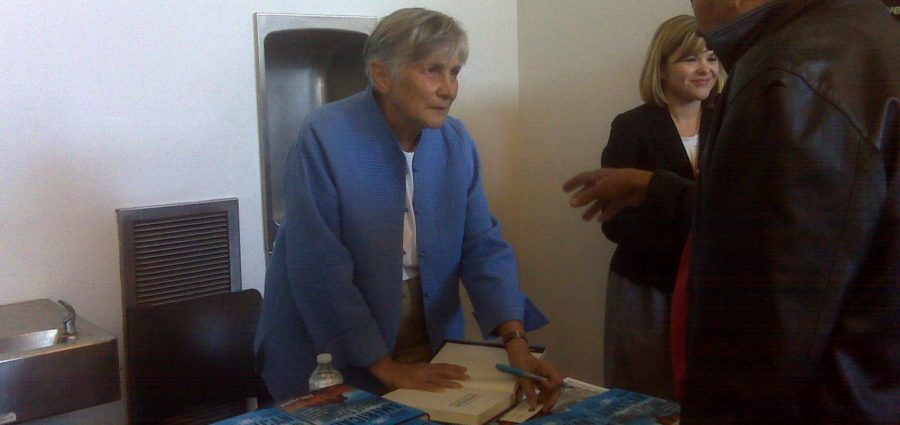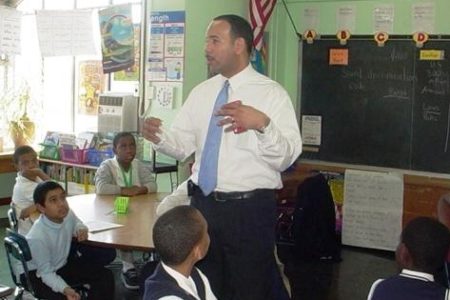The mayor and the Department of Education were under attack on October 15, 2011at the first educational summit in Bronx.
A noted research professor and historian of education criticized mayoral control over the education system and accused the Department of Education of favoring charter schools over public schools to the detriment of Bronx school children.
Diane Ravitch, a research professor of education at New York University addressed two different visions of schools reform: Bloomberg’s view based on testing and accountability, and another view based on research, evidence and experience.
In her 19-minute speech, Ravitch talked about what Bronx students from kindergarten through high school needed – educational opportunity like children in richer districts and a good school in every neighborhood. “They need a full rich curriculum that the children of the wealthy get as matter of right,” Ravitch said in front of an audience of approximately 2,000 people at Lehman College’s Performing Arts Theater.
Ravitch said her formula for equal educational opportunity means hiring principals with successful careers in the classroom, providing small class sizes so children get extra attention, as well as offering art and music classes, science laboratories, foreign language classes and physical education periods every day.
“These are the children whose needs are the greatest. We must not neglect them,” she said. “As the richest nation we must insist on the best possible education for the children of this borough.”
Among the 180,081 school children attending public school in the borough, 8,699 attend charter schools. A total of 32 exist in the borough, serving students in grades K through twelve. Four charter schools are currently under consideration to open, according to the Department of Education website.
Charter schools are publicly funded and open to all students in New York City. A non-profit board of trustees governs each charter school. Members can be business owners among education professionals and community members. Charter schools are reviewed every five years for high student achievement.
The children need experienced teachers, not newcomers, Ravitch said, referring to the Chancellor Denis M. Walcott’s announcement in September of a plan to close low-performing middle schools, opening new ones, adding more charter schools, and pushing more teachers and principals through in-house leadership program in the next two years.
For 10 closing low-performing schools, the city will ask for $30 million in federal funds to implement the plan.
“Why the children with the greatest needs will have the least experienced teachers doesn’t make sense to me,” she said. The Department of Education, Ravitch said, favors the charters schools because they have powerful philanthropic support in the financial community. “The department treats regular public schools as the ‘step children,’” she said. That is 95 percent of the public schools in the city. “Who is looking out for them? Isn’t that the DOE’s job?” Ravitch said. The agency did not return phone calls asking for a comment.
Ravitch accused the education department of responding to systemic problems of schools with systemic formula – close the schools with low-performing students, open charter schools. “This doesn’t help immigrant children learn English,” she said.
Ravitch pointed out several times that the mayor, Michael R. Bloomberg cannot be held accountable for the death of the school system not because he should not but because he’s too powerful. When the mayor decided to overturn term limits and spend $105 million campaigning for a third term, it was clear there was no way to hold him accountable, Ravitch said. “We can’t even vote him down.”
What is lost with mayoral control is not accountability, but democracy, Ravitch said. The mayor appoints the chancellor, “looking trough his rolodex,” she said. The chancellor is accountable only to the mayor, not to the public. And the Panel for Educational Policy is a “rubber stamp” for the mayor, Ravitch said. “They listen only to him because he appoints majority.”
The Panel for Educational Policy consists of 13 appointed members and the chancellor. Each borough president appoints one member and the mayor appoints the remaining eight. The Chancellor serves as a non-voting member.
She also said that parents and the community do not play a role in the decision-making process that affects education. “No one cares what they want or what they think. The panel will vote as the mayor tells them to vote,” Ravitch said.
Ravitch talked about the rising graduation rate in New York City. According to the New York State Education Department Board of Regents, the high school graduation rate is 64.5 percent. Of those, 22.8 percent are not ready for college and need to take remedial classes in math and English.
“This means that graduation rate is as meaningless as the test scores,” Ravitch said. “Because despite the fact that these students passed their tests in high school and were getting good grades, they are still not ready to go to college.”
After the Ravitch’s speech, Robert Friedman, a retired teacher from the Bronx, said the educational system might not ever improve. “I have this fear that this might be irreversible and possibly we may fall further behind in education than other countries,” he said.
Glynis Cherry works in special education in several school in the city. She said she was not either impressed or shocked by the speech. “I felt that she is a strong advocate in identifying needs but it doesn’t necessarily change the policies,” Cherry said. She did, however, agree that the mayor is not held accountable.
Ravitch’s speech excited most of the audience as they were applauding after every sentence on how Bronx children need the opportunities children in richer neighborhoods already have.
The Bronx educational summit continued with information sessions on early childhood, health, parents’ involvement and English Language Learners.








